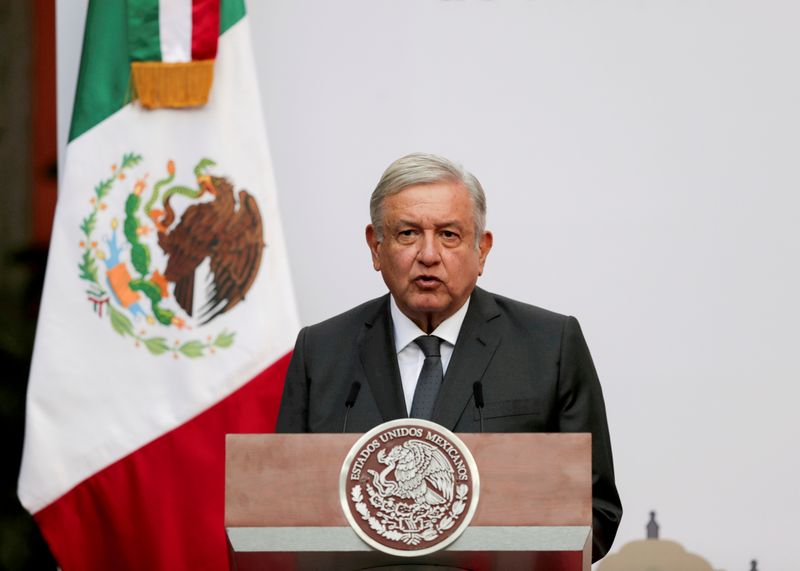MEXICO CITY (Reuters) - The top American oil lobby is urging the U.S. government to raise concerns about Mexican President Andres Manuel Lopez Obrador's energy policies, which it said are undermining investor confidence and violate Mexico's trade commitments.
In a letter to senior U.S. officials dated May 5, the American Petroleum Institute (API) criticized recent amendments to the power industry and hydrocarbons laws that favor of Mexican state energy companies at the expense of others.
"The common denominator of both laws is to hinder new private investment in the energy sector as well as destroy the value of already operating private assets in violation of Mexico's commitments" under the new United States-Mexico-Canada Agreement (USMCA), it said.
Lopez Obrador, who took office in 2018, has staked his reputation on reviving highly indebted oil company Petroleos Mexicanos and power utility Comision Federal de Electricidad.
The energy nationalist has often said his predecessors "deliberately destroyed" the state energy companies to leave the market in the hands of foreigners.
But recent changes to energy laws likely contravene Mexico's commitments to nondiscriminatory treatment and investment, the institute said in the letter, shared by API. It is signed by API President Michael Sommers.
It is addressed to U.S. Secretary of State Antony Blinken, U.S. Secretary of Energy Jennifer Granholm, U.S. Secretary of Commerce Gina Raimondo and U.S. Trade Representative Katherine Tai.
API also asked officials to include "these violations" as a top discussion item in free trade commission meeting between Tai and Mexican Economy Minister Tatiana Clouthier.
A spokesman for the president's office did not immediately respond to requests for comment.

U.S. lawmakers and private companies, have already complained to the White House that Mexico is undermining the trade deal.
But Lopez Obrador has embraced USMCA as vital to reviving Mexico's economy after the coronavirus pandemic, and has publicly signaled apprehension about flouting the accord.